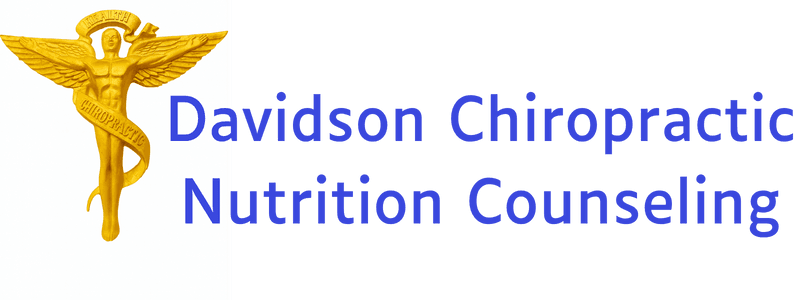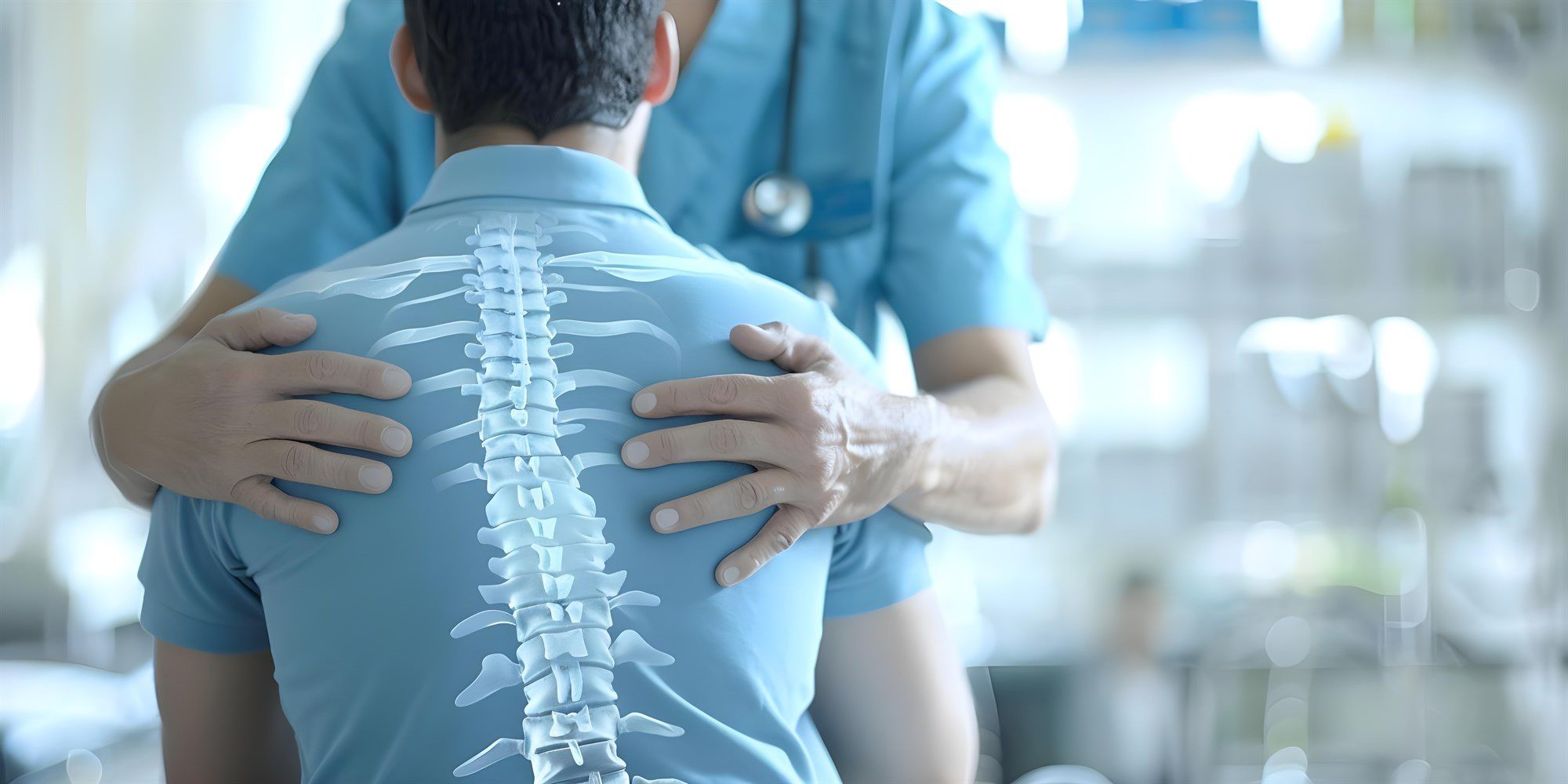Automotive Injuries
Recover from Automotive Injuries: Restore Your Mobility and Vitality with Expert Chiropractic Care
Discover Lasting Relief After Your Car Accident – Schedule Your Personalized Recovery Plan Today
If you've been in a car accident, you're not alone. The road to recovery doesn't have to be long and painful. At the practice of Dr. Eric Davidson in Appleton, Wisconsin, we specialize in helping accident victims reclaim their lives through targeted chiropractic adjustments, personalized nutrition guidance, and a holistic approach to healing. Ready to move forward without pain? Book your free discovery call with Dr. Davidson now and take the first step toward a stronger, healthier you. No obligations, just real results.
The Hidden Toll of Automotive Injuries: Why They Linger Long After the Crash
Automotive injuries are more than just bumps and bruises—they're a silent disruptor of daily life. Every year in the United States, over 6 million car accidents occur, leading to injuries that range from minor whiplash to severe spinal trauma. In Wisconsin alone, the Department of Transportation reports thousands of collisions annually, many resulting in long-term musculoskeletal issues. If you're in Appleton or the surrounding Fox Valley area, you know how quickly a routine drive can turn into a nightmare.
What makes these injuries so insidious? The high-impact forces involved in even low-speed crashes—sudden stops, twists, and jolts—can misalign your spine, strain muscles, and inflame nerves without immediate symptoms. You might walk away from the scene feeling "fine," only to wake up days later with headaches, neck stiffness, or lower back pain that radiates down your legs. This delayed onset is due to the body's protective mechanisms: adrenaline masks the pain initially, but as it wears off, the true damage reveals itself.
Common automotive injuries include:
Whiplash: A rapid forward-backward motion of the head that stretches and tears soft tissues in the neck. Symptoms like dizziness, jaw pain, and chronic fatigue can persist for months.
Soft Tissue Damage: Sprains and strains in ligaments and muscles, often in the shoulders, back, or hips, leading to reduced range of motion and ongoing discomfort.
Herniated Discs: The jolt compresses spinal discs, causing them to bulge or rupture, which pinches nerves and results in sciatica or numbness.
Concussions and TMJ Disorders: Head impacts or jaw clenching during impact can cause brain fog, sleep disturbances, or temporomandibular joint issues.
These aren't just physical setbacks; they ripple into your emotional and professional world. Imagine struggling to lift your kids, missing work due to debilitating pain, or canceling family outings because every movement hurts. Studies from the Journal of Orthopaedic & Sports Physical Therapy show that untreated automotive injuries increase the risk of chronic pain by up to 50%, turning a temporary issue into a lifelong burden.
But here's the good news: recovery is possible without relying solely on medications or surgery. At Dr. Davidson's practice, we view automotive injuries as opportunities for profound healing. By addressing the root cause—misalignments and inflammation—through gentle chiropractic adjustments, and supporting your body's repair with nutrient-rich nutrition, you can accelerate healing and prevent future issues. Dr. Eric Davidson, a board-certified chiropractor with over 15 years of experience in Appleton, has helped hundreds of local residents bounce back stronger than before.
In the sections ahead, we'll dive deep into how car accidents affect your body, the transformative power of chiropractic care, and the essential role of diet in fueling recovery. By the end, you'll see why partnering with Dr. Davidson isn't just treatment—it's an investment in your future mobility.
How Car Accidents Disrupt Your Body's Natural Balance
When you think of a car accident, images of crumpled metal and airbags deploying come to mind. But beneath the surface, a cascade of biomechanical chaos unfolds. Your body, engineered for stability and fluid movement, is thrust into survival mode. The spine, that elegant column of vertebrae protecting your central nervous system, absorbs the brunt of the force. In a rear-end collision, for instance, your torso is propelled forward while your head snaps back—a classic whiplash mechanism that can shift vertebrae by millimeters, enough to irritate spinal nerves.
Let's break it down scientifically. The average car crash generates forces equivalent to 5-10 times your body weight on the neck and spine. This compression and shear stress the intervertebral discs, which act as shock absorbers. When damaged, these discs lose hydration and elasticity, leading to degenerative changes over time. Research from the Spine Journal indicates that 70% of whiplash patients develop chronic symptoms if not treated within the first three months, often due to unchecked inflammation.
Beyond the spine, automotive injuries trigger a systemic response. Adrenaline surges, followed by cortisol spikes, which suppress immune function and delay tissue repair. Muscles spasm to "guard" injured areas, creating a vicious cycle of tightness and weakness. Nerves, compressed or stretched, send erratic signals, manifesting as tingling, weakness, or referred pain—like that sharp twinge in your arm from a cervical misalignment.
For Appleton residents, winter roads add another layer of risk. Icy conditions lead to more swerves and side impacts, which torque the torso and strain the rib cage or pelvis. A study by the National Highway Traffic Safety Administration (NHTSA) highlights that side-impact crashes are 40% more likely to cause thoracic spine injuries, contributing to breathing difficulties or mid-back pain.
Emotionally, the aftermath is equally taxing. Post-traumatic stress from the event can amplify physical symptoms, creating a feedback loop where anxiety tenses muscles further. Many patients arrive at Dr. Davidson's office feeling defeated, their active lifestyles—hiking the Paper Trail or cheering at Lawrence University games—on hold.
The key to breaking this cycle? Early intervention that restores alignment and reduces inflammation. Chiropractic adjustments realign the spine, relieving nerve pressure and allowing your body's innate healing to resume. But adjustments alone aren't enough; what you put on your plate matters just as much. Anti-inflammatory foods can cut recovery time in half, as evidenced by nutritional studies in the American Journal of Clinical Nutrition.
Dr. Davidson's approach is comprehensive: He starts with a thorough assessment, using digital X-rays and posture analysis to map your unique injury pattern. From there, a tailored plan emerges—adjustments to correct subluxations, coupled with dietary recommendations to nourish your cells. Patients often report feeling "unlocked" after just a few sessions, with pain levels dropping 50-70% in the first week.
Imagine trading fog and frustration for clarity and confidence. That's the promise of holistic care for automotive injuries. Keep reading to learn exactly how Dr. Davidson makes this a reality.
Chiropractic Adjustments: Unlocking Your Body's Healing Potential After a Crash
Chiropractic care isn't a band-aid—it's a blueprint for rebuilding. At the heart of Dr. Eric Davidson's treatment for automotive injuries are precise spinal adjustments, a non-invasive technique honed over decades of practice. Adjustments, or spinal manipulations, involve gentle, controlled thrusts to realign vertebrae, easing pressure on nerves and joints. For car accident victims, this is revolutionary: It targets the source of pain rather than masking it with pills.
Consider whiplash, the most common automotive injury. The cervical spine's rapid hyperextension compresses facet joints and stretches ligaments, leading to instability. A targeted adjustment—using the diversified technique, Dr. Davidson's specialty—restores joint mobility, reducing inflammation by up to 60%, per a meta-analysis in the Journal of Manipulative and Physiological Therapeutics. Patients feel immediate relief: That constant neck crick eases, headaches fade, and sleep improves as the vagus nerve, stimulated by alignment, calms the nervous system.
For lower back injuries, like those from seatbelt forces or awkward landings, adjustments focus on the lumbar and sacroiliac regions. A common post-accident issue is sciatica, where a herniated disc irritates the sciatic nerve. Dr. Davidson employs the Thompson drop-table technique, allowing gravity-assisted corrections that are comfortable even for acute pain. Results? Numbness recedes, leg strength returns, and daily tasks—like shoveling snow in Appleton winters—become effortless again.
But chiropractic's magic extends beyond pain relief. Adjustments enhance proprioception, your body's sense of position, which crashes disrupt. This improves balance and prevents falls, crucial for older adults or those with lingering dizziness. Moreover, regular care boosts endorphin release, combating the depression often linked to chronic pain.
Dr. Davidson integrates adjunct therapies for comprehensive recovery. Soft tissue work breaks up scar tissue from strains, while therapeutic ultrasound penetrates deep to accelerate healing. Electrical stimulation calms overactive nerves, mimicking the TENS units you might use at home but with clinical precision.
Safety is paramount. Adjustments are contraindicated only in rare cases like fresh fractures, which Dr. Davidson screens for rigorously. For most, it's safer than over-the-counter meds, with zero addiction risk.
In Appleton, where community ties run deep, Davidson Chiropractic Nutrition Counseling feels like an extension of home. Appointments are flexible, accommodating shift workers from nearby mills or offices.
Ready to experience this transformation? Chiropractic adjustments aren't just treatment—they're your ticket to reclaiming the active life accidents try to steal.
Nourish to Flourish: The Power of Diet and Nutrition in Automotive Injury Recovery
Healing isn't just structural; it's cellular. After a car accident, your body craves raw materials to repair torn tissues, quell inflammation, and rebuild bone density. Enter nutrition: the unsung hero that amplifies chiropractic adjustments. Dr. Davidson doesn't just align your spine—he empowers you with a diet blueprint tailored to accident recovery, drawing from functional medicine principles.
Inflammation is the common thread in automotive injuries. Post-crash, cytokines—pro-inflammatory messengers—flood your system, prolonging pain and delaying repair. A nutrient-dense diet shifts this by providing antioxidants and omega-3s to douse the fire. Fatty fish like salmon, rich in EPA and DHA, reduce joint swelling by 30%, according to the Arthritis Foundation. Dr. Davidson recommends incorporating them twice weekly, alongside walnuts and flaxseeds for plant-based options.
Protein is your repair crew. Muscles and ligaments rebuild with amino acids from lean sources: chicken, eggs, and legumes. Aim for 1.2-2.0 grams per kilogram of body weight daily, especially if you're active. Collagen supplements, which Dr. Davidson often suggests, support disc integrity—studies in Current Medical Research and Opinion show they cut joint pain by 20% in trauma patients.
Vitamins and minerals are the conductors. Vitamin C from bell peppers and citrus accelerates collagen synthesis, vital for ligament healing. Magnesium, found in spinach and almonds, relaxes spasms—a godsend for whiplash tension. And don't overlook vitamin D; Wisconsin's long winters mean many locals are deficient, slowing bone recovery. Dr. Davidson tests levels and advises sun exposure or fortified foods.
Hydration ties it together. Dehydrated discs lose resilience, exacerbating herniations. Shoot for half your body weight in ounces daily, infused with lemon for electrolyte balance.
A sample day from Dr. Davidson's recovery meal plan:
Breakfast: Greek yogurt parfait with berries (antioxidants), chia seeds (omegas), and a scoop of collagen powder.
Lunch: Grilled turkey salad with kale, quinoa, and avocado—protein-packed and anti-inflammatory.
Snack: Apple slices with almond butter for sustained energy.
Dinner: Baked cod with sweet potatoes and broccoli, drizzled with olive oil.
Dessert: Dark chocolate (70%+ cacao) for mood-boosting flavonoids.
This isn't deprivation; it's delicious empowerment. Patients lose weight as a bonus—Sarah dropped 12 pounds in two months—while energy soars.
Avoid pitfalls: Cut processed sugars and trans fats, which fuel inflammation. Limit caffeine, which depletes magnesium. Dr. Davidson provides grocery lists and recipes, even virtual cooking demos for busy Appleton families.
Combined with adjustments, this nutritional synergy shortens recovery by weeks. A study in the Journal of Chiropractic Medicine found patients following anti-inflammatory diets healed 25% faster.
Fuel your comeback. With Dr. Davidson's guidance, every bite becomes a step toward vitality.
Why Appleton Trusts Dr. Eric Davidson for Automotive Injury Care
In the heart of the Fox Valley, Dr. Eric Davidson stands out as more than a chiropractor—he's a partner in resilience. Licensed in Wisconsin since 2008, Dr. Davidson earned his Doctor of Chiropractic from Northwestern Health Sciences University, with postgraduate training in auto injury protocols. His Appleton office, nestled near College Avenue, serves as a beacon for those sidelined by crashes on I-41 or local roads.
What sets him apart? A patient-first philosophy: Thorough exams, transparent communication, and insurance-friendly billing
Your journey starts here. Don't let an accident define you.
Your Next Move: Contact Dr. Davidson Today
Pain doesn't have to be permanent. Call (920) 257-4011 or visit us at 2110 S Memorial Drive, Appleton, WI 54915 for your no-cost consultation. Mention this page for a complimentary nutrient assessment. Reclaim your drive—literally and figuratively. Dr. Eric Davidson is ready to guide you home to health.






